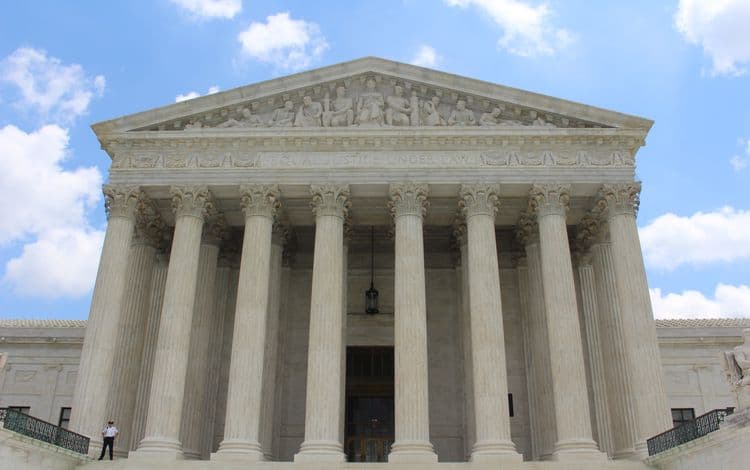In the most basic terms, a subsidy is the government's way of helping to spur the economy. A subsidy is a form of a grant that is given to either a private institution or public group or sometimes an individual that is meant to stimulate economic growth. In tandem with helping from a financial standpoint, subsidies are also intended to be used largely for projects/production of goods and services that best serve the public interests. In this article, we look at what types of subsidies are available and how they benefit certain businesses and industries.
Government Subsidies – Understanding The Basics
A form of a financial grant, a subsidy is issued by the government in an attempt to, for the most part, stimulate those economic activities that can benefit the public good. So for instance, if a public company needs money and there is an opportunity for engaging in work that could be an advantage to the public's interest, they may be eligible for a subsidy. Not relegated to a single sector, a government subsidy can apply to a variety of industries and business types, depending on need and intent.
Subsidies can be disbursed at the federal and also local levels. Within the US, government subsidies can influence overall market prices and impact the economy in significant ways. There are five different categories of government subsidies. Below are descriptions of those subsidy categories.
Export subsidies. When dealing with export subsidies, we are mainly talking about the government providing support to those who export products internationally. Once the item is exported, then the subsidy in question would be implemented. That is to say, the entity that did the exporting will have to inform the appropriate government department of the number of goods exported. The subsidy will in effect compensate them based on the volume reported. One of the more commonly seen export subsidies is used to help US farmers maintain a competitive edge with foreign exporters.
Agriculture subsidies. Many governments, including the US, do help their agricultural producers by providing subsidies. In some cases, this is done to help protect domestic food sources/prices. Some subsidies will pay farmers to keep the production of certain agricultural products down and in this way ensure greater stabilization of food prices across the country.
Oil subsidies. Oil subsidies historically have been implemented to try and keep oil prices from becoming too high for the average consumer. Oil subsidies have been a major part of the federal government's budget since the World War I era.
Housing subsidies. When it comes to housing subsidies, the intent with these is to help those who are looking to buy a home but need help by offering down payment assistance as well as providing interest rates subsidies. One of the more common subsidies within this sector is that is used to help reduce taxes by providing a mortgage deduction. This will be calculated on federal returns every year. Homeowners can take a deduction based on mortgage interest paid. The government also has subsidies that pertain to low-income families who have been saving for a down payment but cannot afford the full amount to qualify for a home loan.
Healthcare subsidies. Comprising almost thirty percent of the US budget, healthcare subsidies are given to citizens via programs such as Medicaid and CHIP for example. Additionally, there are healthcare subsidies dedicated to helping with various prescription drug treatments and trials.
When The Government Distributes Subsidies
Subsidies do not get distributed in one singular way. Rather, there are a few different methods that governments will use to distribute subsidies to companies and people.
Cash subsidies. As far as cash subsidies are concerned, this is simply the government giving the cash amount directly to an organization. So for example, with renewable energy companies, the government will often pay them directly with a cash subsidy as the intention is to promote increased growth in that specific sector.
Tax concessions. Tax concessions are fairly common and are a result of the government looking to decrease the tax burden on a certain companyindustry. These can go to small businesses, larger companies as well, and individuals in certain circumstances.
Assumptions of risk. When governments loan businesses money with very favorable terms, this is known as the assumption of risk and is also a relatively common form of government subsidy. At times, the loan interest rate will be even lower than what the government would be charged in borrowing the funds.
Government purchases. In this scenario, a government would go ahead and purchase products from a specific entity to help that business attain the needed revenue and thus spur its growth. This is very often done in terms of the agriculture sector. The federal government purchases a large stock of crops thereby helping farmers make money and also enabling the government to have a reserve in-stock should some form of natural disaster ensue.
Stock purchases. Sometimes the government will purchase a company's stock by way of a subsidy. This helps keeps stock prices at a certain level, so for example, if something occurs and the stock price is in danger of plummeting thereby bankrupting the company, the government will step in to try and salvage that company with such subsidies.
Subsidies can be a boon to the economy. And those businesses and sectors that benefit from government subsidies often do so during downtimes and in this way, the market, in general, is stimulated.
First Union Lending works with companies across the US, helping get them the funds they need when they need it—not weeks or months from now. Our short term loans, lines of credit, and merchant cash advances are fast and flexible. Some of our clients receive money within two days. We do work that quickly. Call today if you need additional working capital. We want to help!
